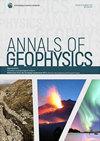对过去灾难的地质记忆的丧失:以庞贝为例
IF 1.2
4区 地球科学
Q3 GEOCHEMISTRY & GEOPHYSICS
引用次数: 1
摘要
公元79年,维苏威火山在几天内将整个城市埋在浮石和灰烬之下。这是一个突然的事件,在几个世纪的沉寂之后发生,只有多年来周期性重复的地震才预示着它的到来,让人上瘾,而不是惊慌。事件发生后,植被覆盖了火山产物,灾难的记忆消失了。第一次发掘工作于1738年在赫库兰尼姆开始,十年后在庞贝开始,当时考古学还不存在。很多东西被毁了,送掉了,扔掉了。几乎完好无损的建筑物出现了,里面装着所有的东西,许多居民被抓得在逃。随着挖掘方法的不断进步,恢复遗址的艰巨过程经历了重要但并不总是愉快的阶段。火山学从这些经验中汲取了尽可能多的经验,为自己设定了一个目标,即重建一次爆发的故事。这是世界上第一次由小普林尼(Pliny the Younger)描述的爆发,也是一次在建筑、植被、动物和人类身上留下最深刻印记的爆发。如果没有这次喷发,庞贝和赫库兰尼姆就会消失。关于罗马人如何在这场悲剧中丧生的细节是提供给庞贝游客的一个重要组成部分,但目前这在很大程度上是不完善的。认识它,重建它对人民和领土的影响,超越考古遗址,是对过去的经验,也是对今天和未来的警告。本文章由计算机程序翻译,如有差异,请以英文原文为准。
The loss of geological memory of past catastrophes: the case of Pompeii
In 79 A.D. Vesuvius buried entire cities in a few days under a blanket of pumice and ashes. It was a sudden event, which occurred after centuries of inactivity, heralded only by earthquakes that repeated periodically, for many years, creating addiction rather than alarm. After the event, the vegetation covered the volcanic products, and the memory of the disaster was lost. The first excavations began in Herculaneum in 1738 and in Pompeii ten years later, in times when archeology still did not exist. Much was destroyed, given away, thrown away. Almost intact buildings emerged, with all their contents, with many inhabitants caught on the run. The arduous process of recovering the sites has had important and not always happy stages, accompanied by continuous progress in the excavation methods. Volcanology has drawn from those experiences as much as it could, setting itself the goal of reconstructing the story of an explosive eruption, the first in the world to be described, by Pliny the Younger, the one that most left its mark on buildings, vegetation, animals and humans. Without the eruption, Pompeii and Herculaneum would have disappeared. The details on how the romans lost their lives in the tragedy is an important component to be offered to Pompeii’s visitors and that is at present largely imperfect. Knowing it and reconstructing its impact on people and the territory, going beyond the archaeological site, is an experience of the past and a warning for today and for the future.
求助全文
通过发布文献求助,成功后即可免费获取论文全文。
去求助
来源期刊

Annals of Geophysics
地学-地球化学与地球物理
CiteScore
2.40
自引率
0.00%
发文量
38
审稿时长
4-8 weeks
期刊介绍:
Annals of Geophysics is an international, peer-reviewed, open-access, online journal. Annals of Geophysics welcomes contributions on primary research on Seismology, Geodesy, Volcanology, Physics and Chemistry of the Earth, Oceanography and Climatology, Geomagnetism and Paleomagnetism, Geodynamics and Tectonophysics, Physics and Chemistry of the Atmosphere.
It provides:
-Open-access, freely accessible online (authors retain copyright)
-Fast publication times
-Peer review by expert, practicing researchers
-Free of charge publication
-Post-publication tools to indicate quality and impact
-Worldwide media coverage.
Annals of Geophysics is published by Istituto Nazionale di Geofisica e Vulcanologia (INGV), nonprofit public research institution.
 求助内容:
求助内容: 应助结果提醒方式:
应助结果提醒方式:


